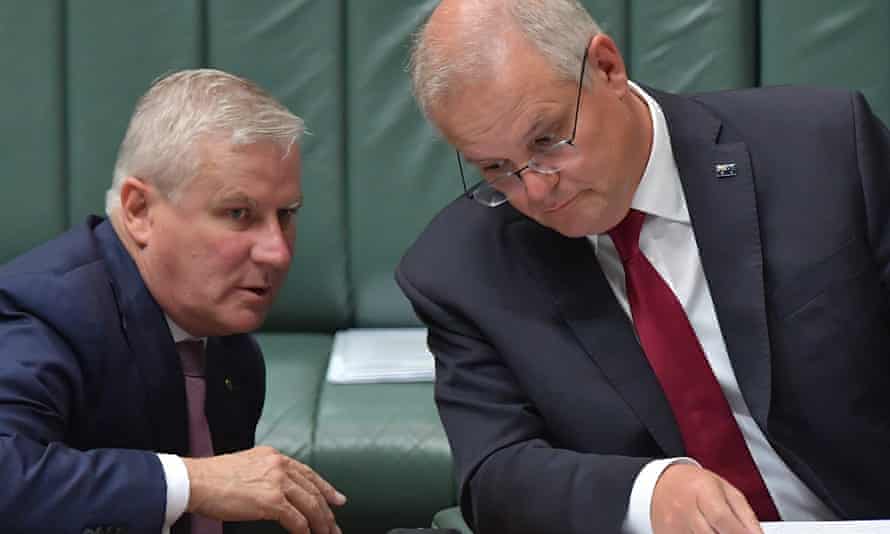Extract from The Guardian
Deputy PM says he’s focusing on now, not 2050, as Coalition’s climate skirmishes go on.
Last modified on Sun 7 Feb 2021 13.34 AEDT
The Coalition is facing an increasingly testy party room as it struggles to land on a climate policy, with the Nationals leader, Michael McCormack, declaring he is “not worried about what might happen in 30 years’ time”.
The deputy prime minister said excluding agriculture from Australia’s attempts to reach net zero emissions by 2050 may be one option.
The prime minister, Scott Morrison, has said he would like to see Australia reach such a target but has not formally committed to it.
New Zealand has set a framework for its path to net zero emissions by 2050 but has provided an exemption for farming.
Some Australian Nationals MPs, including the former party leader Barnaby Joyce and Senator Matt Canavan, have been increasingly vocal about quarantining industries such as agriculture and mining from any target Australia signs up to.
McCormack told Sky News on Sunday that while Australia must do its “international bit”, regional Australia should not be made to suffer.
“There is no way we are going to whack regional Australia, hurt regional Australia, in any way shape or form just to get a target for climate in 2050,” he said. “We are not going to hurt those wonderful people that put food on our table.”
Australia is facing increasing pressure to commit to a net zero 2050 target in line with the Paris agreement after the election of the US president, Joe Biden, who has made climate policy a priority.
Morrison has not advanced Australia’s progress on the issue, instead committing to make changes “through technology, not taxation” – despite taxation not being an option put on the table by any major party, including the opposition, which is yet to lay out its plan.
The prime minister has indicated his government is considering a formal target but has yet to commit.
“Our goal is to reach net zero emissions as soon as possible, and preferably by 2050,” he said last week.
But in a sign of just how difficult crafting a consensus climate policy can be within the Coalition, Morrison’s deputy said the future was not a priority for him.
“We are not worried, or I’m certainly not worried, about what might happen in 30 years’ time,” McCormack said. “The concentration at the moment, indeed for me, for the National party and, indeed, for regional Australia is getting back on our feet after what’s been a very challenging year.”
Australia is not on track to meet its 2030 target of a 26% to 28% emissions reduction below 2005 levels. The latest projection shows Australia falling short by 4% to 6%, with just 10 years left to the deadline.
The projected drop – 6.8% this decade – is prefaced on changes in the energy market, with a surge of wind and solar power expected to come on line.
The government has also ruled out subsidies to make new generation electric vehicles cheaper, as other developed nations have done, and assumes transport emissions will continue to rise over the coming decade, with the cost and lack of infrastructure leading to a slower take-up of electric vehicles than across the world.
No comments:
Post a Comment